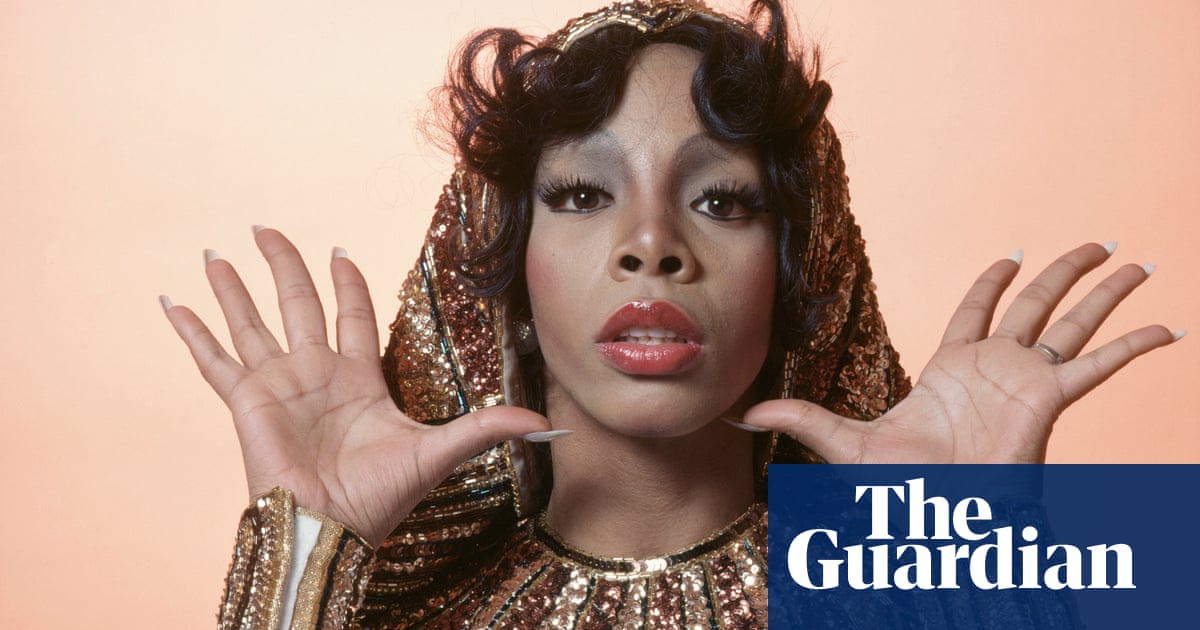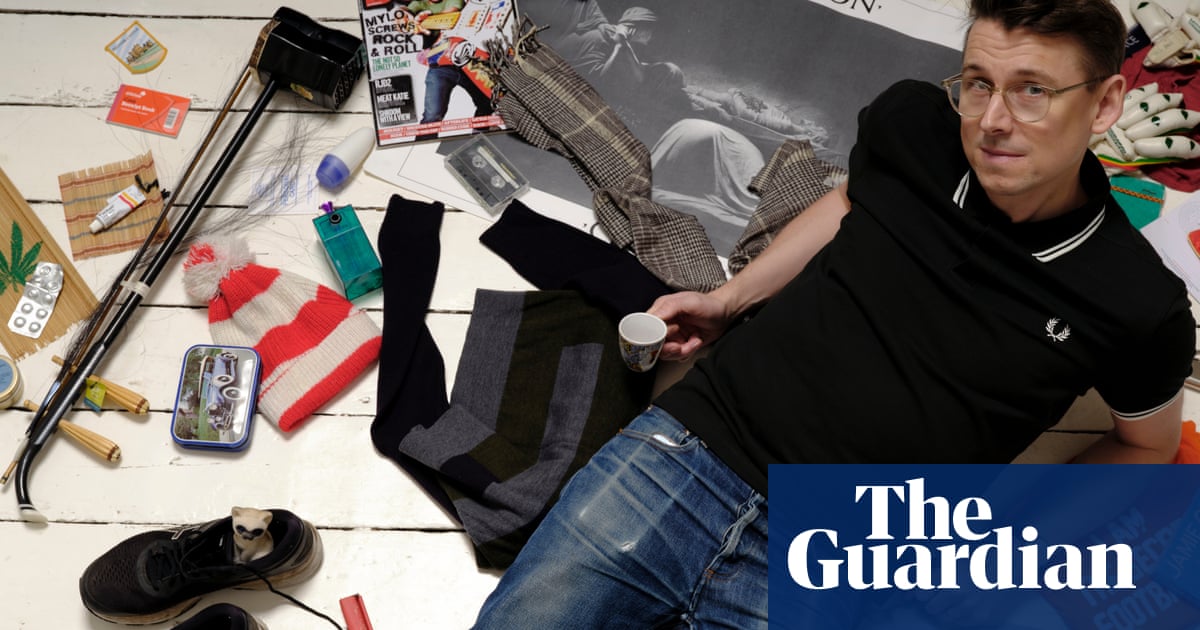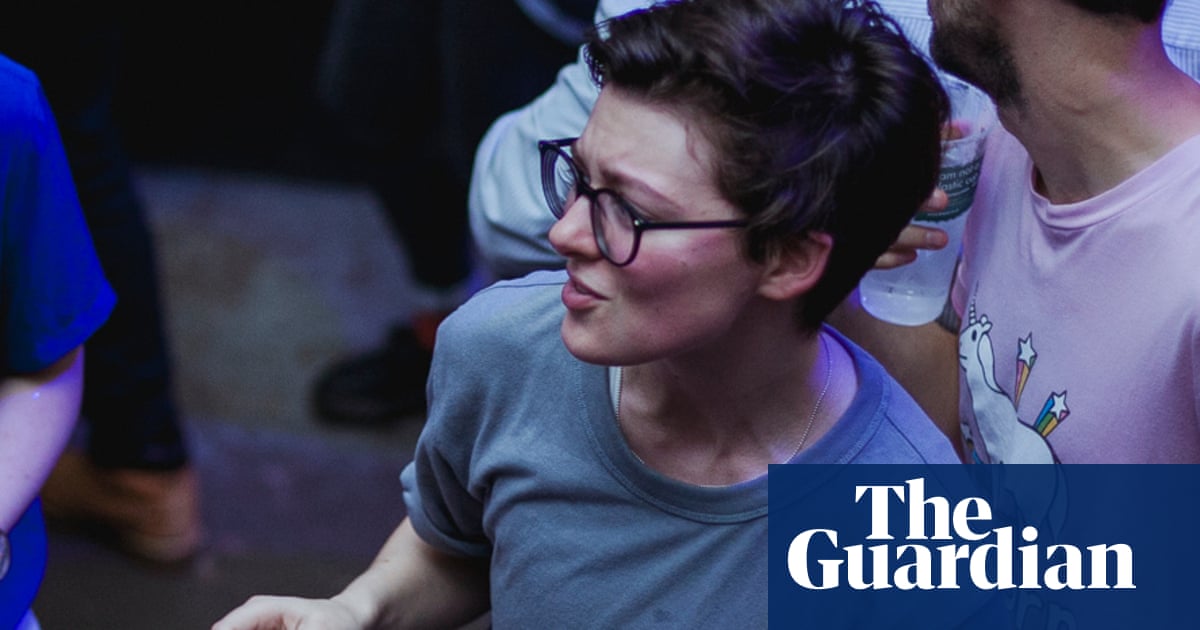
Omari Douglas is a natural performer in the truest sense. We meet in the rehearsal space, where he’s preparing for a new production of Cabaret alongside Jessie Buckley and Eddie Redmayne at the Kit Kat Club, inside London’s Playhouse theatre. Although we’re cutting into his lunch break, the 27-year-old actor – and current favourite to be the next star of Doctor Who – gesticulates enthusiastically as if he’s used to being permanently on stage. “I’ve always admired how television and film can bring audiences together,” he beams.
The Playhouse’s Cabaret is the latest in a long line: the 1966 musical by John Kander and Fred Ebb was inspired by John Van Druten’s classic 1951 play I Am a Camera, which was itself an adaptation of Christopher Isherwood’s 1939 novel Goodbye to Berlin. These facts are relayed to me by Douglas at breakneck speed; the actor has seen Cabaret three or four times. He is now stepping into the leading role of Clifford Bradshaw, a lost American novelist who arrives at Berlin’s seedy Kit Kat Club. “I’d never envisioned myself as a Cliff,” he says. “But we’re being given the space to find something new.”
Director Rebecca Frecknall has opted to portray Cliff, usually written as bisexual, as queer-identifying. As a Black actor taking on the role – also a rarity – Douglas is not nervous about such changes. “We’ve had those conversations about what nuances I as a Black actor will bring to the role, but it doesn’t feel like I’m having to work too hard to make it make sense,” he says. “Cliff is from Harrisburg, Pennsylvania, which was and still is a predominantly African American community; it doesn’t take a rocket scientist to understand that there could have been a Black man who has come from America to Berlin to find himself and his identity.”
Douglas’s enthusiasm makes sense when tracing his roots as a performer. Although theatre is where he got his start, appearing in Jesus Christ Superstar and Annie Get Your Gun, most viewers might recognise Douglas from Channel 4’s It’s a Sin, playing the spirited Roscoe Babatunde in Russell T Davies’s drama. He followed that up by appearing alongside Russell Tovey in a gender-swapped production of Constellations. After we speak, it emerges he has become the bookies’ favourite to be cast as the next Doctor (not bad for someone whose TV debut was in January). Douglas is officially a rising star, a fact he humbly laughs off.
Part of his appeal may be his willingness to take on roles that deal with race and sexuality. It’s not necessarily intentional, he says, but he is pleased with the conversations his characters have opened. “It kind of feels like a happy byproduct. I’m really grateful that me being in these pieces allows things to come to light in a different way. If the opportunities are there then I won’t say no, because it changes the game for people.”
Douglas is of Jamaican heritage and grew up in Wolverhampton with his mother, his father being based in the US. Although he was an only child, he was brought up with numerous older cousins who lived nearby. Much of his childhood was spent “trying to entertain them”, watching soaps and going to the cinema with his extended family, a tradition that endures. He caught the performing bug before he could understand what the stage was: “I’ve seen a video of me in a nativity as one of the wise men. I remember my family finding it hilarious because I’m literally conducting the others!” Another early performance was a rendition of Britney Spears’ … Baby One More Time at a primary school talent show. “Quite a traumatic memory,” he says, “but I always loved performing.”
He did well academically but his mother had always supported his love for performing. She also encouraged conversations about his sexuality and identity. “After It’s a Sin came out, I’ve realised that I was always supported for who I was. Growing up Black, gay, and knowing so young, there is always this stigma of ‘Does this work in my world?’ And actually, it did: the support had always been there.”
He found himself split at A-level between applying for university and drama school, but chose the latter after being encouraged by his performing arts teachers. Ambitions of an acting career had gone full throttle in his mid-teens; a landmark moment was being “consciously moved” after seeing a production of Once on This Island when he was 14. “Sharon D Clarke was in it and there’s a predominantly Black-led cast,” he says. “I remember going to the stage door afterwards and meeting some of the actors. At the time, I didn’t necessarily have the language to articulate what visibility meant in that moment. But, looking back, it’s how I felt. I wanted to be there because what I saw made the possibilities seem more tangible, and accessible.”Although he enjoyed his time at drama school, he often felt typecast. “‘Oh, you’re in musical theatre, and you’re Black. So you’re gonna be in The Lion King,’” he says. “And it’s like: well, yeah, maybe, but I can also do everything else that everyone else is doing.” It made him acutely aware of the differences for Black and queer actors in the media world, and he talks passionately of the need to mix up traditions in casting and production that keep underrepresented groups off our stages.
“Marianne Jean-Baptiste is renowned as being one of our greats – she should be side by side with her white female contemporaries here. But she’s someone who went to America and I observed that trajectory,” he says. “Someone could be equally as talented as someone else but not necessarily held in the same regard in the UK, because this person’s white and that person’s Black.”
“[We need] more producers who don’t consider queer or predominantly Black stories as ‘risky’. Because time and time again, we prove that they’re not risks. It’s a Sin was considered a risk by a lot of gatekeepers. That people were still unsure of how a show by Russell T Davies would be received is remarkable. But still, time and time again, there are so many people up there who are not broad-minded enough.”
He hopes for “less of the same old” and is eager to see not just changes in how works are adapted but what is adapted: “They’re great, but there’s also lots of other people that we can be adapting from.” And in his own future? For what might be the first time today, the actor takes a lengthy pause. “I just love my job. I always want to be better,” he says. “I’ve never seen myself as being the best. I want to be good at what I do. And having a platform to do it is a bonus, and a great thing.”












